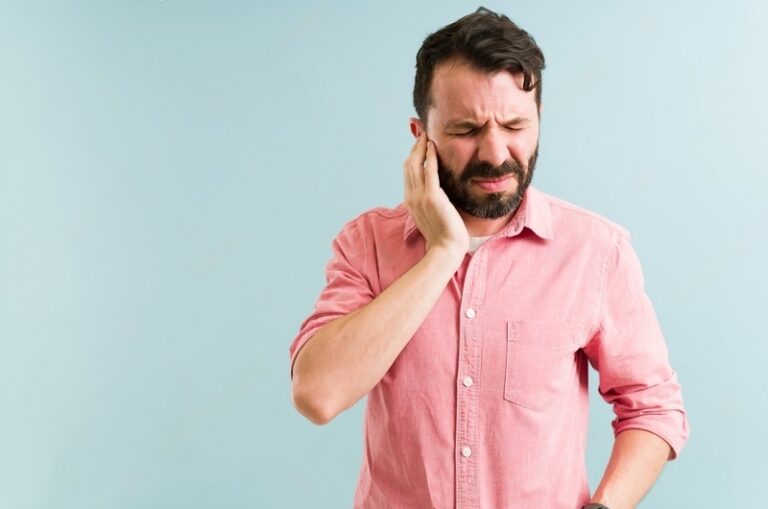What is the Spiritual Meaning of Nail-Biting?
Have you ever caught yourself nervously biting your nails when you’re stressed or anxious? Or maybe you know someone who has a habitual nail-biting problem. If so, you may be curious – is there a deeper, spiritual reason behind this common habit?
Here’s a quick interpretation:
The spiritual meaning of nail-biting lies in what fingernails symbolize – our ability to protect and defend ourselves. Chronically biting nails down to nubs suggests feelings of powerlessness against life’s stressors, indicating issues with boundary-setting, self-care and resilience. It can also signify inner turmoil with maternal relationships, perfectionistic tendencies or lack of self-control. Addressing these root emotional drivers can help break the destructive habit.

Why Do People Bite Their Nails?
For many nail-biters, the habit begins in childhood as a way to cope with difficult emotions. The reasons can vary greatly between individuals:
- It can be a self-soothing mechanism when feeling anxious, angry, impatient or frustrated
- It can be a mindless habit due to boredom
- It may be a symptom of a mental health disorder like OCD or ADHD
Often, children learn the habit from parents or siblings who also bite their nails. And once established, it can be extremely tough to break – even into adulthood.
But what does nail-biting actually mean from a spiritual perspective? Let’s explore some symbolic interpretations.
The Mother Wound
“An unhealthy or broken relationship with one’s mother can manifest physically through nail-biting.”
Some psychologists have linked the origin of nail-biting to a strained relationship with one’s mother. The idea is that nail-biting allows a person to release unconscious aggression towards the maternal figure without overtly confronting her.
So if you have inner turmoil with your mother or maternal caregiver, it may physically show itself through compulsive nail-biting. Getting to the root of this conflict can be key in kicking the habit.
Stress Overload
Frequent nail-biting often signals that your body is overloaded with stress and anxiety. It’s a red flag that your nervous system is in distress.
On a spiritual level, our nails can represent our ability to protect ourselves and establish boundaries. So chronically biting them can reflect a depleted sense of security and stability in life.
Developing tools to calm your nervous system – like meditation, breathwork, yoga, etc. – can help ease anxiety and break the nail-focused habits it drives.
Emotional Vulnerability
Our fingernails give us a means “to defend ourselves when necessary”
By biting your nails down to nubs, it can indicate feelings of emotional vulnerability or perceived weakness against life’s attacks. You may subconsciously feel unable to stand up for or defend yourself effectively.
Making a point to build emotional resilience, exercise your assertiveness skills, and speak your truth can help turn this tendency around. You can dismantle internal beliefs about being powerless, not enough or easily overpowered.
Lack of Self-Control
Finally, habitual nail-biting can suggest issues with self-discipline and willpower. Perhaps you struggle with procrastination, impulsiveness, addictive behaviors, or chronically broken commitments to yourself.
Setting clearly defined goals, building new positive habits, and holding yourself accountable can strengthen your sense of self-mastery. As you become more responsible for your choices, you may bite your nails less in moments of chaos or indecision.
When Nail-Biting Becomes Problematic
Most people occasionally bite their nails in moments of stress or boredom. But it becomes concerning when:
- You frequently bite your nails down to the beds until they bleed or hurt
- Your nails are bloody, infected or misshapen from chronic biting
- It causes you distress or interferes with daily life
- You’ve unsuccessfully tried to stop many times
This level of severity likely requires professional support. Speak to your doctor or mental health professional to explore the root causes and most effective treatment.
Health Consequences
While not life-threatening, long term nail-biting can lead to painful health issues over time:
- Infections – Opening the skin leaves you vulnerable to bacterial, viral and fungal infections on your fingers
- Damaged nails – Years of biting can cause the nails to become ragged, ridged, discolored or separated from nail beds
- Dental problems – Cracking, chipping or wearing down teeth from chronic biting motions
- Digestive issues – Swallowing nail bits over time may cause internal irritation or buildup
So while it may seem harmless on the surface, there are good reasons to curb intense nail-biting behavior.
Breaking the Habit – Where to Start
| Method | Description |
|---|---|
| Identify your triggers | Notice when and why you start biting (eg. talking on the phone, watching TV, sitting at your desk). Become conscious of these moments. |
| Keep your hands busy | Fidget with a stress ball, clay, worry beads etc. Redirect the need to bite onto another object. |
| Use bitter polish | Paint unpleasant tasting polish onto your nails so you stop automatically when you bite. |
| Set reminders | Put sticky notes that say “stop biting” around your home or office near your common triggers. |
| Get accountability | Tell close friends about your quit goal and have them gently call you out when they notice biting. |
Replacing the physical habit requires determination and commitment. But uncovering the emotional drivers behind it often accelerates success.
If anxieties, trauma, or perfectionistic tendencies perpetuate your nail-biting, address the root cause simultaneously. This may involve counseling, support groups, life changes or self-development practices.
Whichever approach resonates, remember – you have the power to choose new habits that honor your health and wholeness. Be patient with yourself and celebrate all wins along the way.
FAQ
1. Is nail-biting linked to perfectionism?
Yes, nail-biting can sometimes be a physical manifestation of perfectionistic tendencies. The urge to bite hangnails, uneven edges or cuticles stems from anxiety about flaws. Managing the need for flawlessness and self-criticism can help.
2. What vitamin deficiency causes nail-biting?
Iron and vitamin B6 deficiencies may both contribute to chronic nail-biting. Ensuring you get enough of these nutrients can help minimize urges. But the habit usually has emotional drivers too that need addressing.
3. Can I stop biting nails through meditation?
Yes, mindfulness meditation helps ease anxiety and build self-awareness around triggers for nail-biting. By consciously directing your attention during moments of stress, you gain power over reactions like biting.
4. Is nail-biting hereditary?
Genetics likely play a partial role. Children of parents who bite nails are more inclined to model the same habit. But environmental factors and emotional coping abilities still weigh heavily on whether the tendency sticks.
5. What type of counseling helps compulsive nail-biting?
Cognitive behavioral therapy (CBT) has shown great success for addressing obsessive nail-biting driven by underlying emotional turmoil. Building coping skills, identifying distorted thought patterns and substituting healthier habits retrains your mind and body.






